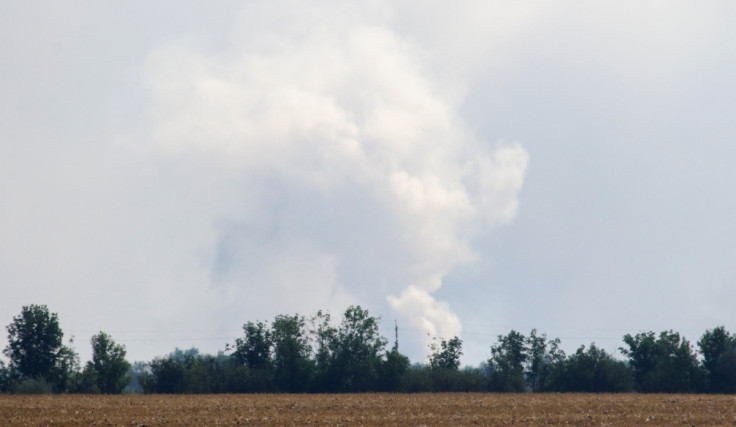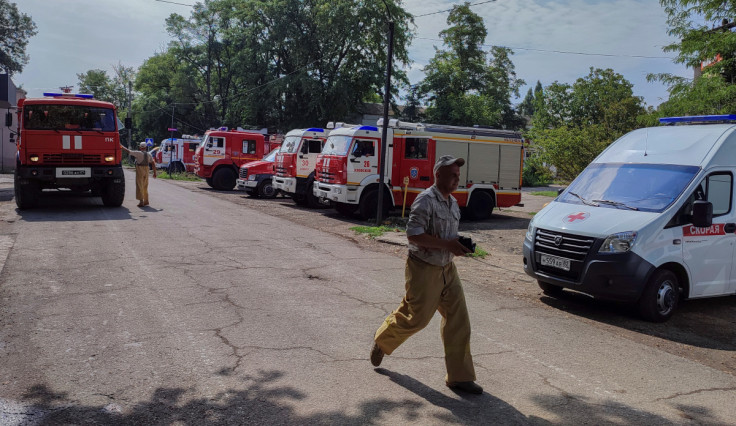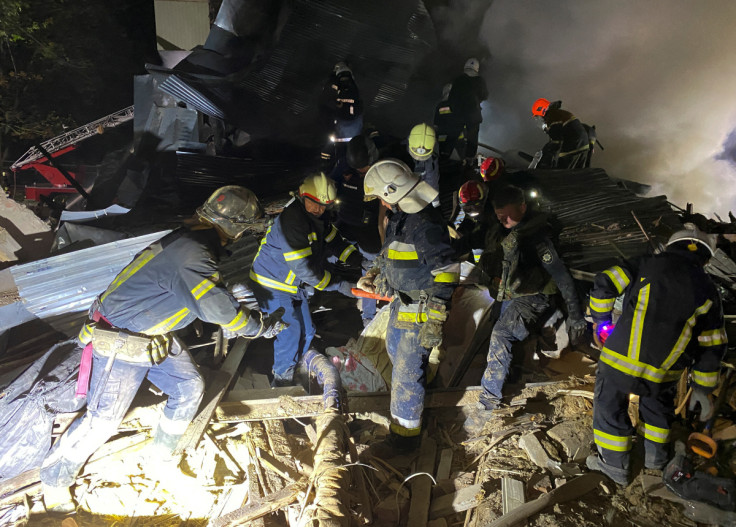Ukraine Says Fighting 'Deadlocked' Ahead Of Visit By U.N. Chief

Ukrainian forces said on Thursday they had beaten back a Russian attack in the southern region of Kherson, while the death toll from Russian shelling of Kharkiv city in Ukraine's northeast climbed as the nearly six-month war grinds on without let-up.
U.N. Secretary-General Antonio Guterres will meet Ukrainian President Volodymyr Zelenskiy and Turkish President Tayyip Erdogan later on Thursday in the western Ukrainian city of Lviv.
They will discuss ways to find a political solution to the war and address the threat to global food supplies and risk of a disaster at Europe's largest nuclear power plant, which has been taken over by Russian forces.
The war has forced millions to flee, killed thousands and deepened a geopolitical rift between the West and Russia, which says the aim of its operation is to demilitarise its neighbour and protect Russian-speaking communities.
"Russian forces have achieved only minimal advances, and in some cases we have advanced, since last month," Ukrainian presidential adviser Oleksiy Arestovych said in a video.
"What we are seeing is a 'strategic deadlock'."
Russian bombardment of a residential area of Kharkiv, Ukraine's second-biggest city, on Wednesday evening killed seven people and wounded 16, the Ukrainian Emergencies Service said.
"This is a devious and cynical strike on civilians with no justification," Zelenskiy said on the Telegram messaging app.
One person was killed and 18 were wounded on Thursday in pre-dawn shelling of another residential area of Kharkiv, Oleh Synehubov, the regional governor said.
The south district of the Operational Command of the Ukrainian armed forces said Ukrainian forces killed 29 "occupiers" near the town of Bilohirka, northeast of Kherson, as well as destroying artillery, armoured vehicles and a military supply depot.
Reuters was not able to independently confirm the battlefield reports.
Fighting around the Russian-occupied Zaporizhzhia nuclear power plant has raised fears of a catastrophe and Guterres has said he wants a demilitarised zone established.
Ukraine's foreign minister, Dmytro Kuleba, said he had spoken to the director general of the International Atomic Agency, who was ready to lead a delegation to the plant.
"I emphasised the mission's urgency to address nuclear security threats caused by Russia's hostilities," he said on Twitter.
Russia's defence ministry accused Ukraine of planning a "provocation" at the plant on Friday while Guterres is visiting Ukraine, Russian state-owned news agency RIA reported.
The two sides have exchanged accusations of shelling near the plant but the Russian ministry said its forces had no heavy weapons there or in nearby districts.
BLACK SEA FLEET CHIEF REPLACED
The United States, Albania, France, Ireland, Norway and Britain have asked the U.N. Security Council to meet on Aug. 24 to discuss the impact of the war in Ukraine, diplomats said, marking six months since Russia's invasion.
A series of blasts at military bases and ammunition depots in the past week in Crimea, the Black Sea peninsula annexed by Russia in 2014, has suggested a shift in the conflict, with Ukraine apparently capable of striking deeper into Russian-occupied territory.
Russia blamed saboteurs for the attacks, while Ukraine has not officially taken responsibility but has hinted at it.
Ukrainian military intelligence said in a statement that after the recent explosions in Crimea, Russian forces had urgently moved some of their planes and helicopters deeper into the peninsula and to airfields in Russia. Reuters could not independently verify the information.
On Wednesday, Russia's RIA news agency cited sources as saying the commander of its Black Sea fleet, Igor Osipov, had been replaced with a new chief, Viktor Sokolov.
If confirmed, it would mark one of the most prominent sackings of a military official in a war in which Russia has suffered heavy losses of men and equipment.
The Black Sea Fleet, which has a revered history, has suffered several humiliations since President Vladimir Putin launched the invasion of Ukraine - which Moscow calls a "special military operation" - on Feb. 24.
In April, Ukraine struck Russia's flagship the Moskva, a huge cruiser, with Neptune missiles. It became the biggest warship to be sunk in combat for 40 years.
MORE GRAIN SHIPS LEAVE
Crimea provides the main supply route for Russian forces in southern Ukraine, where Kyiv is expected to launch a counter-offensive in coming weeks.
The Black Sea Fleet has also blockaded Ukraine's ports since the beginning of the war, trapping vital grain exports that are only now starting to move again, and sending global food prices soaring.
Three more ships with exports left Ukraine's Black Sea ports on Wednesday, a monitoring group said, bringing the number of vessels to leave Ukraine under a U.N.-brokered grain export deal to 24.
The government in Kyiv has said it hoped to increase the monthly volume of sea exports to 3 million tonnes in the near future to clear a backlog of 18 million tonnes of grains left over from last year's harvest and start selling new crops.


Copyright Thomson Reuters. All rights reserved.





















